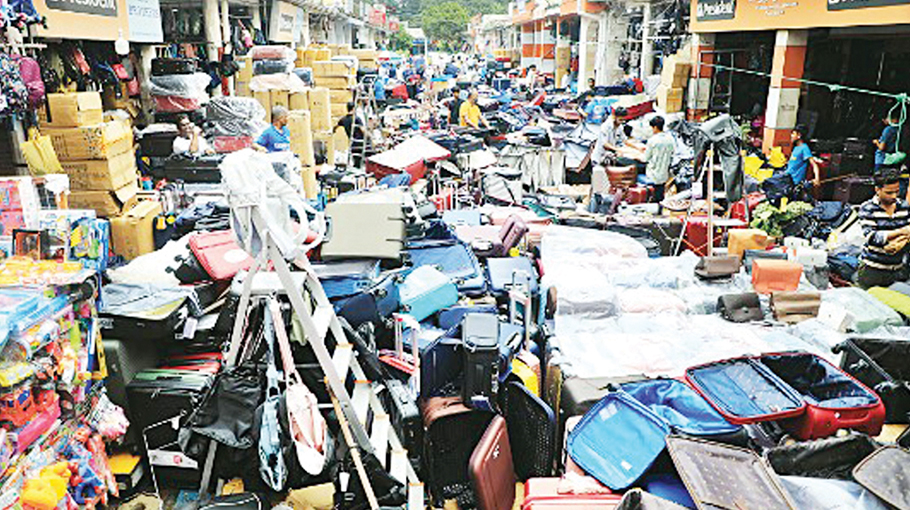Waterlogging takes a heavy toll on business
City shop owners suffer huge losses

Businesses suffered huge losses due to six hours of heavy downpour in the capital city on Friday as shops on ground floors of many markets went under rainwater.
Goods stored in these shops were damaged partially or completely as rainwater entered the premises of different markets like New Market and Mouchak Market. Even shopkeepers are yet to open their shops due to rain-triggered waterlogging.
The extent of the damage became visible once water receded on Saturday afternoon. In many cases, inventories such as electronics, cosmetics, shoes, and clothes were damaged partially or totally.
Businessmen and their employees said that most of the merchandise was soaked and ruined. They are now trying to salvage whatever goods they can. However, they fear they won’t be able to sell these items at their original prices.
Business owners are also worried about their damaged account books, which contain debt collection. Wholesalers, in particular, are in a state of disarray, as they might not be able to collect outstanding dues without proper records.
Two city corporations of Dhaka spent around Tk 7.3 billion to address the waterlogging problem. Dhaka WASA earlier spent over Tk 20 billion to mitigate the waterlogging crisis. All these spending did little to free the city dwellers from waterlogging.
Harun or Rashid, proprietor of a cloth shop in New Market, told this correspondent that their business had already been disrupted by recent quota movement.
“Friday’s rain further ruined our business. Even though water receded early Saturday, it took all day to clean and organise the shop, resulting in no sales for the day. Items stored on the floor were affected seriously,” he added.
President of Dhaka New Market Business Association Dr. Dewan Aminul Islam Shahin told Bangladesh Post, “The New Market area is prone to waterlogging due to its lower elevation compared to surrounding areas. The surface water drainage system in the area is currently functioning and draining out water at one-third of its capacity, for which the situation becomes worst.”
He further said that efforts are being made to install a new drainage line to address the problem. The South City Corporation Mayor has assured them that once the new line is completed, waterlogging may come to an end.
On the other hand, in Fakirapool area, home to numerous printing and packaging presses, businesses on the ground floor suffered substantial financial losses.
Owner of Design Creations Bikash Pal Akash told this correspondent that their printing machines worth crores of taka which went under water are now dysfunctional. “For repairing the machines, both time and money are needed which will badly affect our business.”
President of Bangladesh Shop Owners Association Md. Helal Uddin told media that cosmetic changes have been made in Dhaka, but genuine progress towards sustainable development is lacking. “VAT and tax levied on city residents and traders are primarily used for beautification projects, rather than tackling the longstanding issues, affecting us and the city.”
Officials from Dhaka North and South City Corporations termed the severe waterlogging this year to damage to drainage systems caused by metro rail construction. They also mentioned that ongoing canal encroachment and filling exacerbated the problem. Efforts to reclaim and excavate these canals are underway, which they hope will provide some relief once completed.
DSCC Chief Executive Officer Md. Mizanur Rahman said that the Border Guard Bangladesh (BGB) had closed the water drainage outlet in New Market for security reasons. But its reconstruction work would soon begin to address this issue, which will prevent the waterlogging in New Market and adjacent areas.
Additionally areas like Green Road and Kalabagan, which drain out water through Hatirjheel, have seen reduced drainage capacity due to construction of the Elevated Expressway, leading to waterlogging.



